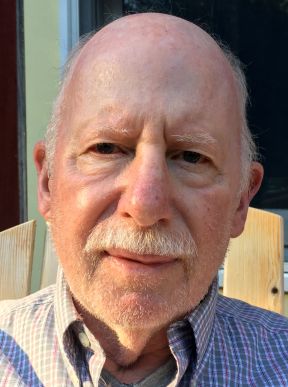No big insight here, but I was traveling recently and the airport terminal was full of people and almost all of them were fixated on their phones, their iPhone, what are called smartphones to be more precise.
Yes, I was armed with my own iPhone, forced upon me by family members who persist in the belief that everyone must be on board for the 21st century. And then my mind went back to the days of Ma Bell.
Ma Bell was the moniker given to the vast monopoly owned by AT&T (American Telephone & Telegraph). This corporate behemoth of a utility provided telephone service that included everything – the telephone itself, phone directory (the ubiquitous phone book), even operators who were actual people who answered questions and gave out information.
Actual telephones came in two versions: wall or table models. They were black and heavy and not attractive at all. To make long-distance calls you talked into the phone and an actual person, called “the operator,” or a zero on the rotary dial, talked back. A typical interchange went like this:
“Operator, give me WYdown 4567 (if you try to do this today nothing would happen except you’d probably end up on a list). The operator would follow directions without putting you on “hold.” A little known fact is that the “hold” procedure was invented by a disgruntled phone operator in 1954, who was forced to listen to a customer complain about the time it took to complete a call.
Which brings me to my mother, who although she had only an eighth-grade education, had proudly figured out how to fool Ma Bell and get away with a free call. It was the high point in my mother’s career as a housekeeper.
In those days there were two choices for long-distance calls: you could call station to station or person to person. In the former case, it was a straight call; you gave the operator the number and she connected you.
My mother’s trick worked like this: She instructed us kids when we traveled near and far to let her know we arrived safely at our destination by making a collect call to ourselves.
Yes, we called ourselves.
“Operator,” we would say from a pay phone at our destination, “I’d like to make a person-to-person collect call to (our name)”.
When the phone was answered, you would hear the operator say “I have a collect call for (our name), will you accept the charges?”
And my mother would say: “I’m sorry operator, he’s not in right now.”
And the operator would ask, “do you know when he’ll return.” Notice how concerned the unknown operator was.
“No, sorry.” My mother would reply. And that would be it for our small war on large monopolies.
Sometime in the 1950s AT&T was forced by antitrust laws to break up into independent regional companies that began competing with gimmicks like Princess Phones in bright colors, until eventually technology won the race and now we have phones we seldom use just to talk with one another.
Instead, we text or we tweet on our “smart” phones, which do everything but make toast in the morning (it’s coming, introducing iToast, iBagel with an iShmear of cream cheese).
My mother lived to see the unraveling of the AT&T monopoly, but she clung to her secret joy in putting one over on Ma Bell until her very last days.
Now she’s permanently long distance and will not accept the charges.
Send questions/comments to the editors.


